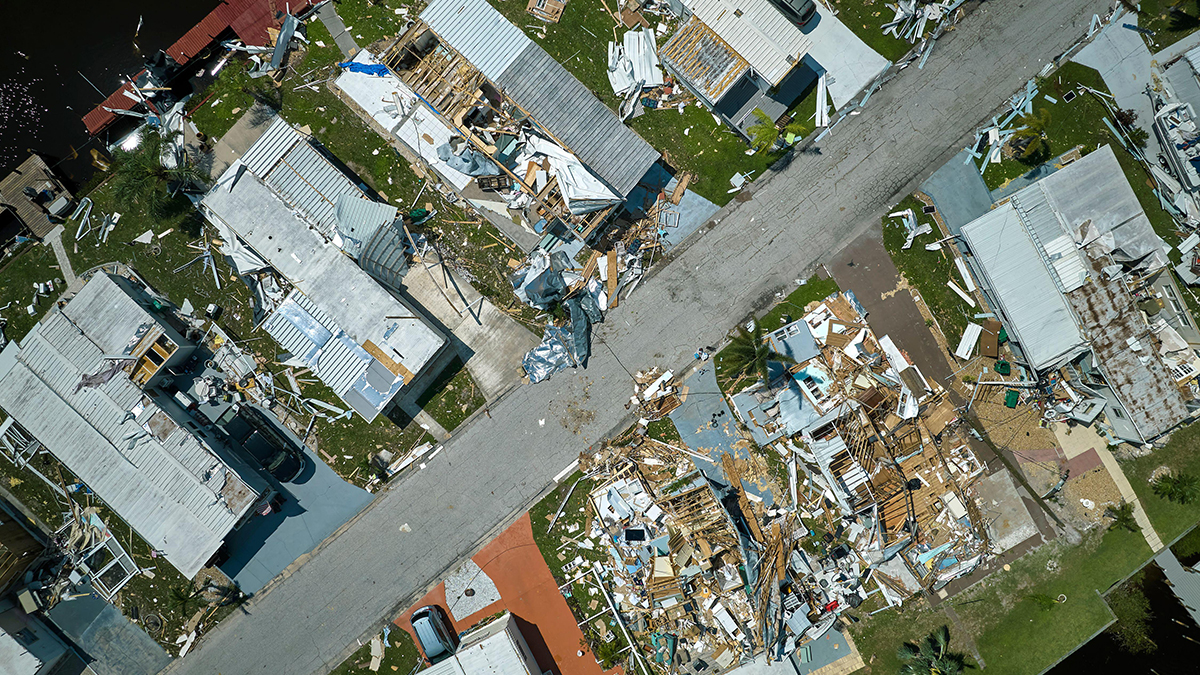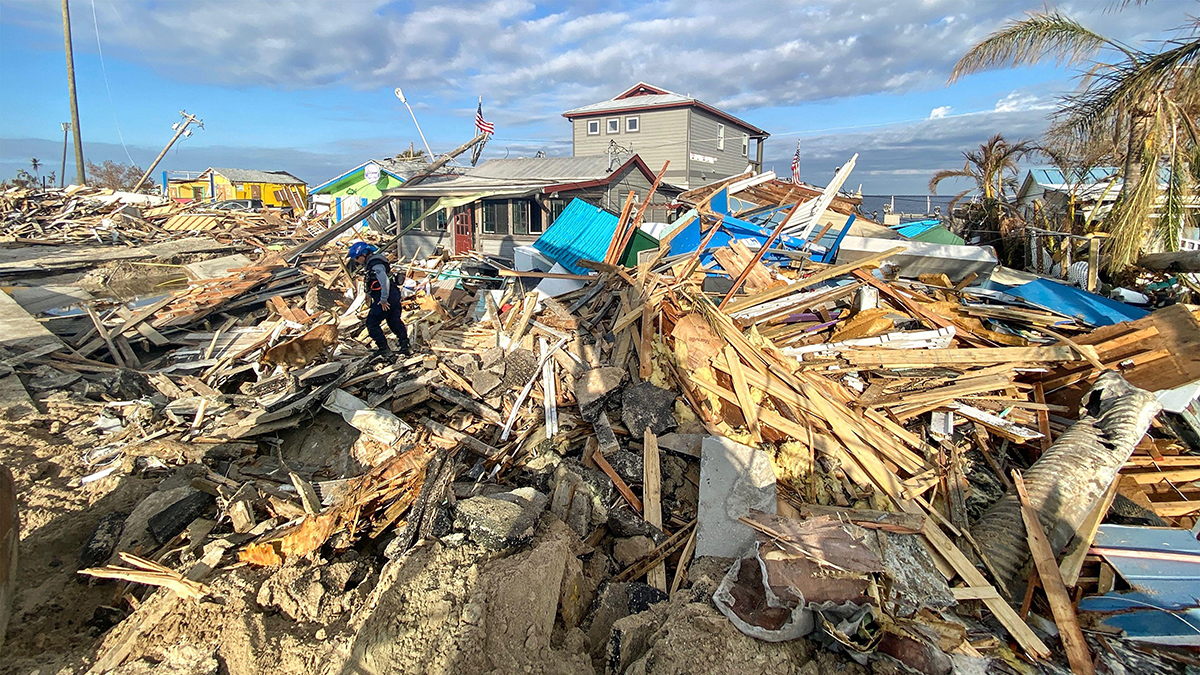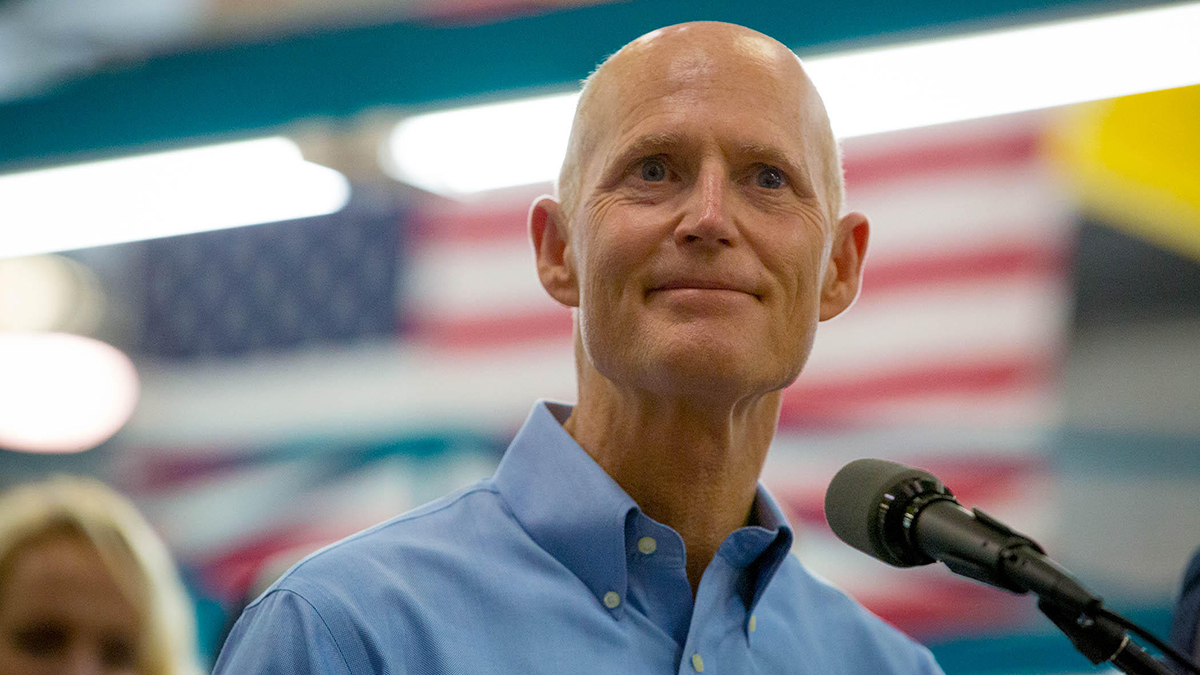Florida is ‘canary in the coal mine’ for property insurers
The weather and beach-front property that have brought so many to Florida are simultaneously the state’s biggest blessing and its biggest curse, with warnings homeowners' insurance in the state could soon be all but unaffordable
The Sunshine State's embattled property insurance market is facing further crisis in the wake of Hurricane Ian. With the threat of climate change growing, experts say Florida's experience demonstrate the critical need for a sustainable property insurance market that better balances resilience with risk transfer
Published in 1511, the first map of Florida shows it as not so much a single mass of land as a string of islands descending in a straight line from the North American continent down to the island of Hispaniola. The early map maker, Peter Martyr, was so confused by the endless bog of low-lying marshland he did not know whether to draw the peninsula as land or water.
It was not until the 19th century, following US president Andrew Jackson’s Trail of Tears, which forced thousands of Native Americans out of their homeland, that Western settlers started arriving in the state in droves. They quickly drained the Everglades of water to start building cities and by the 20th century the land became the prime destination for millions of Americans. Over the past two decades Florida’s population has swelled to make it the third-most populated state in the union.
But unfortunately for Floridians, the weather and beach-front property so many have migrated south to seek is simultaneously the state’s biggest blessing and its biggest curse. Late last month Hurricane Ian made landfall in Florida as a category four storm. Although claims are still pouring in, estimates of upwards of $63bn in insured losses could make Ian the second-most expensive storm in US history after Hurricane Katrina.
Even before Ian hit the state, Florida’s property insurance market was on life support. Since the start of the year five private insurance companies have gone into receivership and over the summer rating agency Demotech announced a possible downgrade of 17 private insurers. With capacity drying up, almost one million Floridians have had to take policies from Citizens, the state’s insurer of last resort. Those who can still find and afford insurance are paying an average of $4,321 a year, which is almost four times the national average.
Despite these sky-high prices, homeowners’ insurance is only likely to become more unaffordable as insurers and reinsurers continue their exodus towards drier and less low-lying land.
“I think sourcing [reinsurance] capacity will be very difficult as an insurer and particularly property insurers will look closely at their ability to secure second event capacity. I expect next year 30% to 70% rate rises,” a source in the reinsurance market told Insurance Day.
While the conversation at recent renewals has mostly been dominated by questions of where to put capital and at what price, post-Ian the conversation will shift to whether there is any willingness to put catastrophe reinsurance capital anywhere at all, the source added.
A report from Fitch Ratings revealed insurance-linked securities investors could flee the state, thereby exacerbating the lack of reinsurance capacity in Florida. Estimating catastrophe losses and pricing risks have been made more difficult owing to an increased frequency of storms over the past 10 to 15 years, the rating agency said.
With climate change-related risks mounting every year, homeowners’ insurance could potentially become the financial burden that keeps many Americans from buying a home. “We are already in a cost of living crisis and homeowners’ insurance is already out of reach for many people. The effects of Ian will put increased strain on home insurance costs and therefore housing costs,” Zac Taylor, a professor at Delft University of Technology in the Netherlands who focuses on the impact of climate change on insurance and real estate, says.
“Over time, some households with high mortgage payments might think they need to sell or become renters. Or we might see people no longer entertaining the idea of working class and middle-income people buying a home in Florida. This could create an ownership class comprised of only the super-wealthy people.”
Despite the increasing risk of hurricanes and flood damage, Florida’s government has shifted the burden of risk on to insurers rather than put regulations in place to control where and how homes can be built. In 2010 Florida's Republican governor, Rick Scott, said the state’s Department of Community Affairs, which regulated land use and development, was a “jobs killer” and scrapped the agency along with its restrictions on growth. According to recent estimates, almost 26% of the state’s population, representing more than million people, now live in floodplains.
In July Christian Mumenthaler, group chief executive of Swiss Re, said increased risk and pricing signals have led to the adaptation of preventative measures in many parts of the world, including better building regulations, but Florida was a “deviation from that norm” with new constructions being created that are "not sustainable and [are] again and again in difficulty”.
The sliver of good news for insurers and reinsurers is loss estimates may be softening, some analysts have suggested. Although initial estimates hovered upwards of $70bn, loss estimates released by Swiss Re, which has a 3% market share, imply losses of around $43bn.
Although if borne out these numbers are welcome news, for insurers the lingering question is not if but when another hurricane will rip through the state, destroying homes and shrinking the insurance sector even further. For Taylor, Florida’s outsized dependence on insurance is not sustainable and he points to The Netherlands as an example of how a focus on prevention rather than insurance can help share the burden of risk.
“We need to take a step back and think about all the tools we have to manage risk in a broader way, be it through building codes and asset retrofits, community-level infrastructure investments, new land use policies and even managed retreat programmes,” he says.
“The sustainability of the insurance industry is a big societal question. I think Florida is just the canary in the coal mine.”



